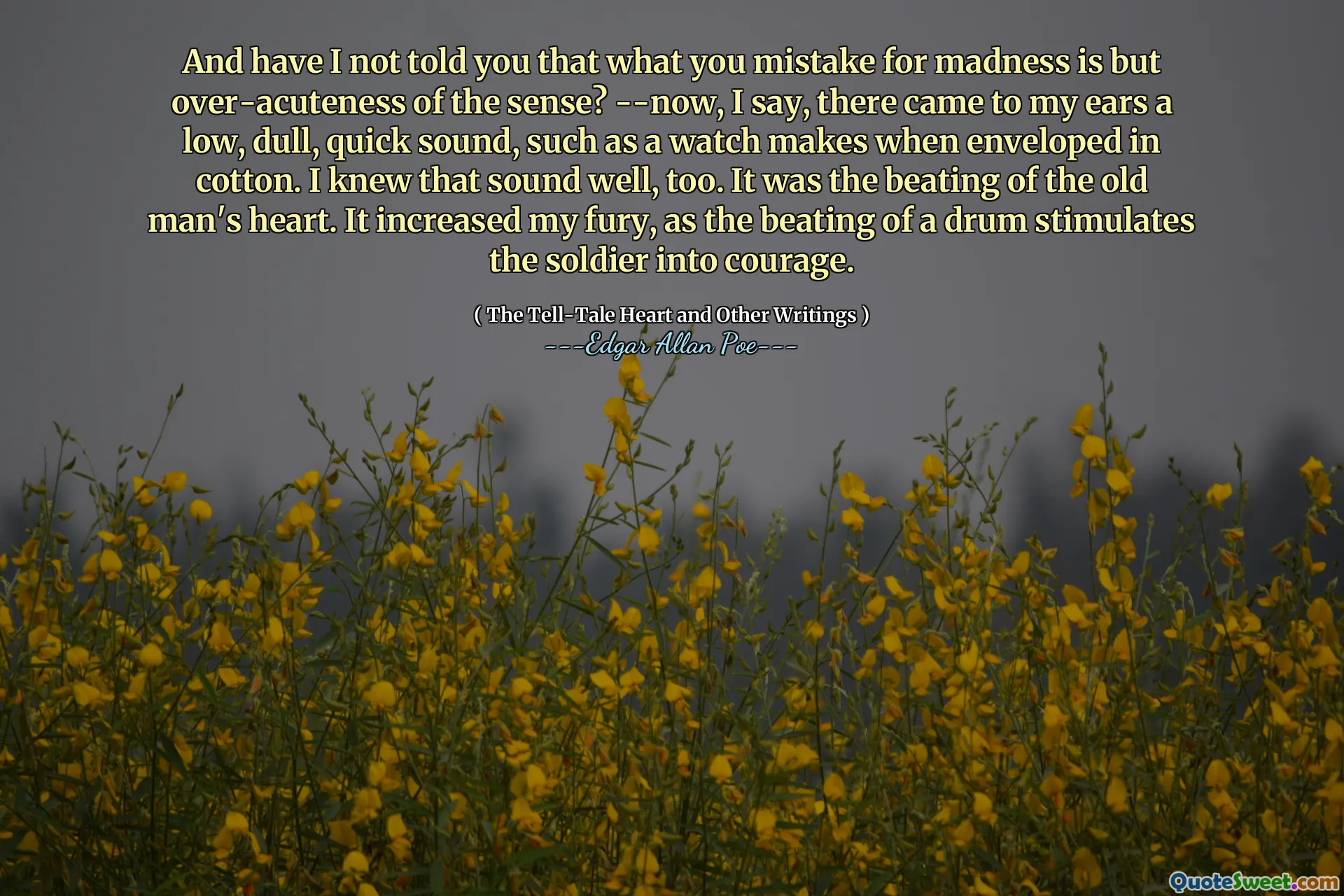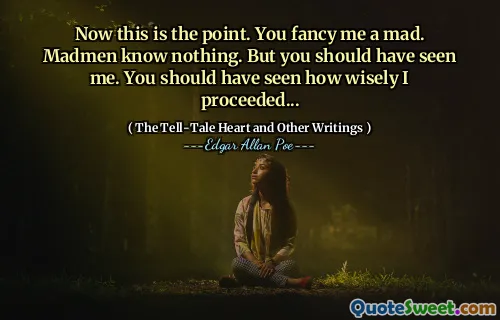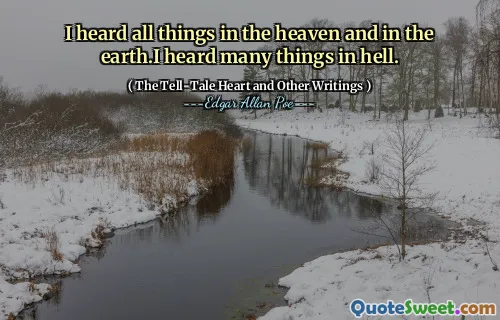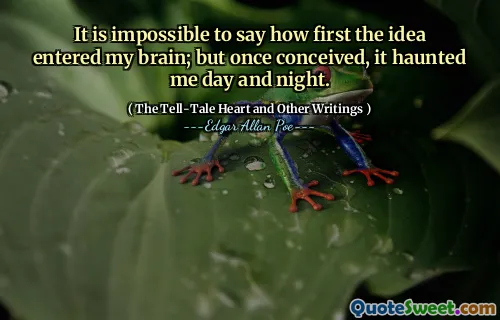
And have I not told you that what you mistake for madness is but over-acuteness of the sense? --now, I say, there came to my ears a low, dull, quick sound, such as a watch makes when enveloped in cotton. I knew that sound well, too. It was the beating of the old man's heart. It increased my fury, as the beating of a drum stimulates the soldier into courage.
In Edgar Allan Poe's "The Tell-Tale Heart," the narrator defends his sanity by proclaiming that his heightened senses are mistaken for madness. He believes that his acute perception sets him apart, fueling his confidence rather than leading him to insanity. This notion reveals the complexity of his mental state, suggesting that what he perceives as clarity may actually contribute to his unraveling. The narrator’s obsession is evident as he describes the immense power the sound of a heartbeat holds over him, elevating his rage.
The heartbeat symbolizes the narrator's inner turmoil and escalating emotional intensity. Just as a drumbeat can rouse a soldier into action, the relentless sound of the old man's heart drives the narrator closer to his breaking point. This connection demonstrates how heightened awareness can distort reality, pushing someone into a state of frenzy. Ultimately, the narrator’s fixation on the heart’s sound reveals the thin line between sanity and madness, illustrating the profound effects of psychological distress.











